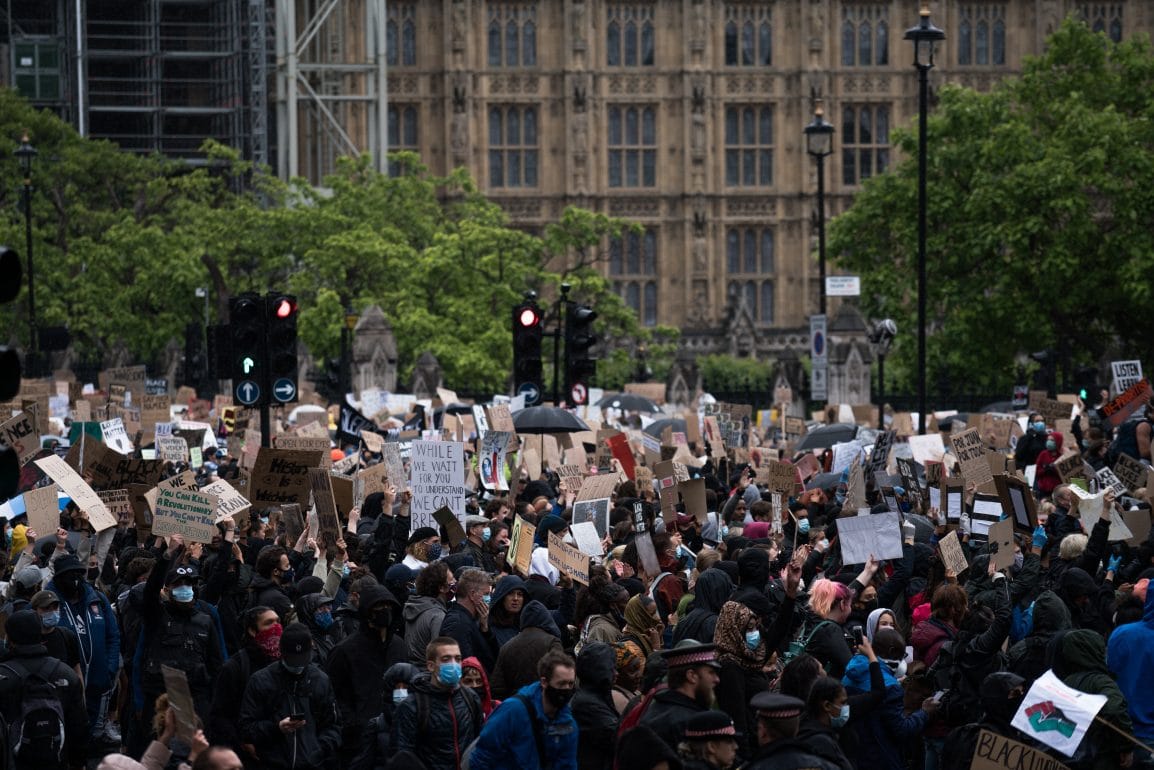We are currently in the midst of a huge eruption of national protests.
The protests have spread over hundreds of cities and every state in America. Additionally, numerous other countries have joined the cause. As we all know, these protests were sparked by the murder of George Floyd by four police officers on May 25th in Minneapolis, Minnesota. While this is what caused the immediate outbreak and outrage, it is only the tip of the iceberg. Unfortunately, our country has a long history of racial discrimination and violence against black people. The protests address the many systemic and structural instances of racism present in our society. Tragedies like George Floyd’s death was not an isolated event.
A Call For Change
Because of this, the protests are calling for numerous changes and actions to be taken, in addition to justice for George Floyd. In fact, the systemic changes that need to be made should be considered part of justice for George Floyd. As people circulate information and resources like wildfire online and over social media, and many white people (including myself) continue to educate themselves on the topic, it can be extremely disheartening to examine just how deep-rooted these systems are. As a white person, it is my job to do this work to educate myself, and if I feel “down” about how hard it might be to change things, I need to remember that is nothing compared to the experience of black and brown people in this country, which I will never understand.
But to anyone else who feels like the more they learn about institutionalized racism, the more impossible it seems to fight: I would like to provide you with some achievements of the protests thus far. And remember, this is not an ending point or a finish line; this is only the beginning, and only more reason to continue the fight for justice.
University of Minnesota ended its contract with the Minneapolis Police Department
On May 28, the University of Minnesota stated they will “no longer contract with the Minneapolis Police Department for additional law enforcement support” and it will not use MPD for “specialized services needed for university events.” (CNN)
Minneapolis Schools cut ties with Minneapolis Police Department
On June 2, the Minneapolis Board of Education voted unanimously to terminate the district’s contract with MPD. Jenny Arenson, vice chair of the board, said “Minneapolis police, individual officers and the city have work to do. And until they demonstrate they have done that work, we need to separate our relationship.” (CNN)
Minneapolis Parks cut ties with Minneapolis Police Department
On June 3, the Minneapolis Park and Recreation Board voted to end its relationship with the MPD. All nine members of the Park Board voted in favor of the resolution to stop using “Minneapolis Police to staff park-sanctioned events” and to end “Park Police response to Minneapolis Police Department calls.” (CNN)
Derek Chauvin’s charge was raised from third-degree to second-degree murder
On June 3, Attorney General Keith Ellison upgraded the charges against Derek Chauvin. The police officer who knelt on George Floyd’s neck for over 8 minutes, is now facing second-degree murder. (StarTribune)
Other 3 officers involved in George Floyd’s murder were finally arrested
On June 3, the other officers at the scene, Tou Thoa, J Alexander Kueng and Thomas Lane, were finally charged. The charges are aiding and abetting second-degree murder while committing a felony. And aiding and abetting second-degree manslaughter with culpable negligence. (StarTribune)
Minneapolis City Council Pledges to defund MPD
This is perhaps the most notable victory of them all. On Sunday, June 7, nine members of the Minneapolis City Council pledged to dismantle the MPD. In its place, they plan to create a new system of public safety. “For activists who have been pushing for years for drastic changes to policing, the move represented a turning point that they hope will lead to a transformation of public safety in the city.” (New York Times)
Stronger Together
These victories never would have happened had it not been for the scale of the protests that have spread around the country. While many have chosen to condone the looting and burning that has taken place, it is important to remember that black people and their allies have been protesting peacefully for years, with little to no change. The fact that this eruption has become so large is what has finally caught the attention of the powers-that-be and forced them to start a process of change.
This is only the beginning. While these are definite wins, they do not address most of the systemic issues at hand—except for the Minneapolis City Council pledging to defund the police department, which has so far only happened in one city. The fact that these small victories have been won should encourage us to continue in this fight and push for real reform. All city and state governments need to divest and defend their police forces, and instead invest in social and community programs that are actually designed to help people. Justice needs to be served for the many other black people murdered at the hands of the police. Let this list of small victories serve to encourage, not appease.

